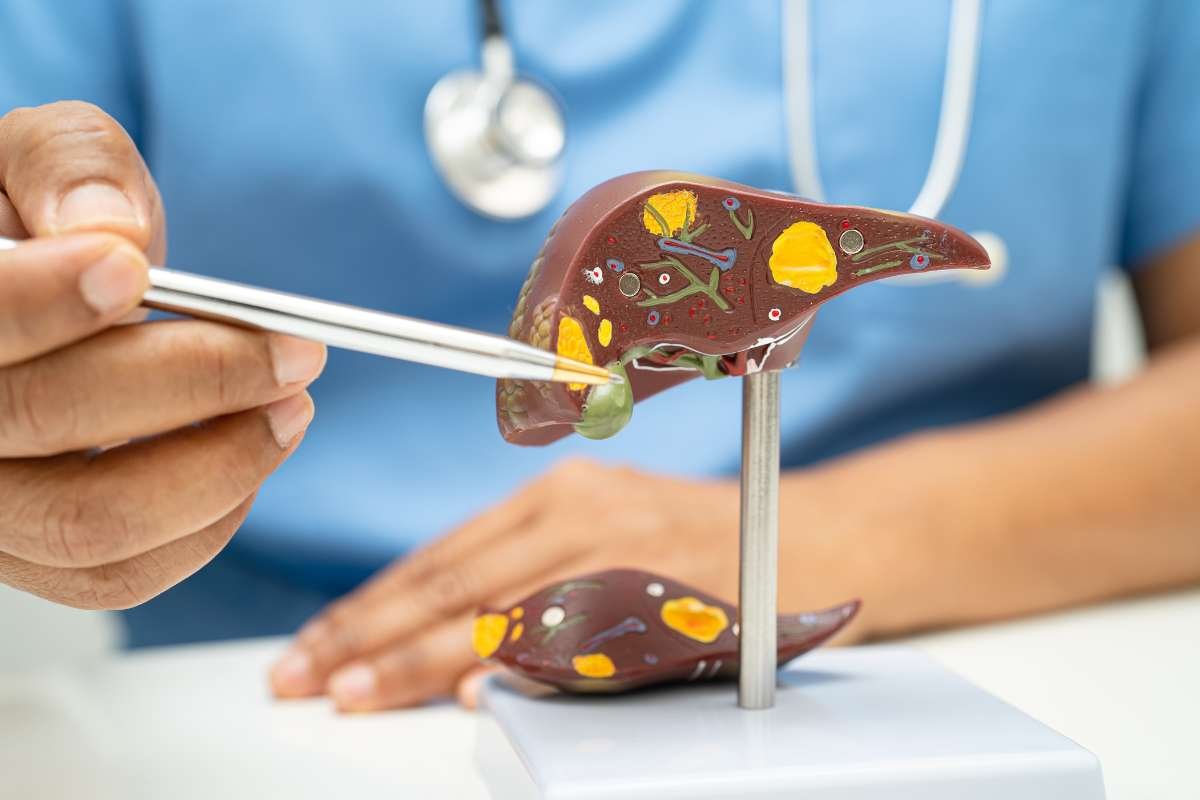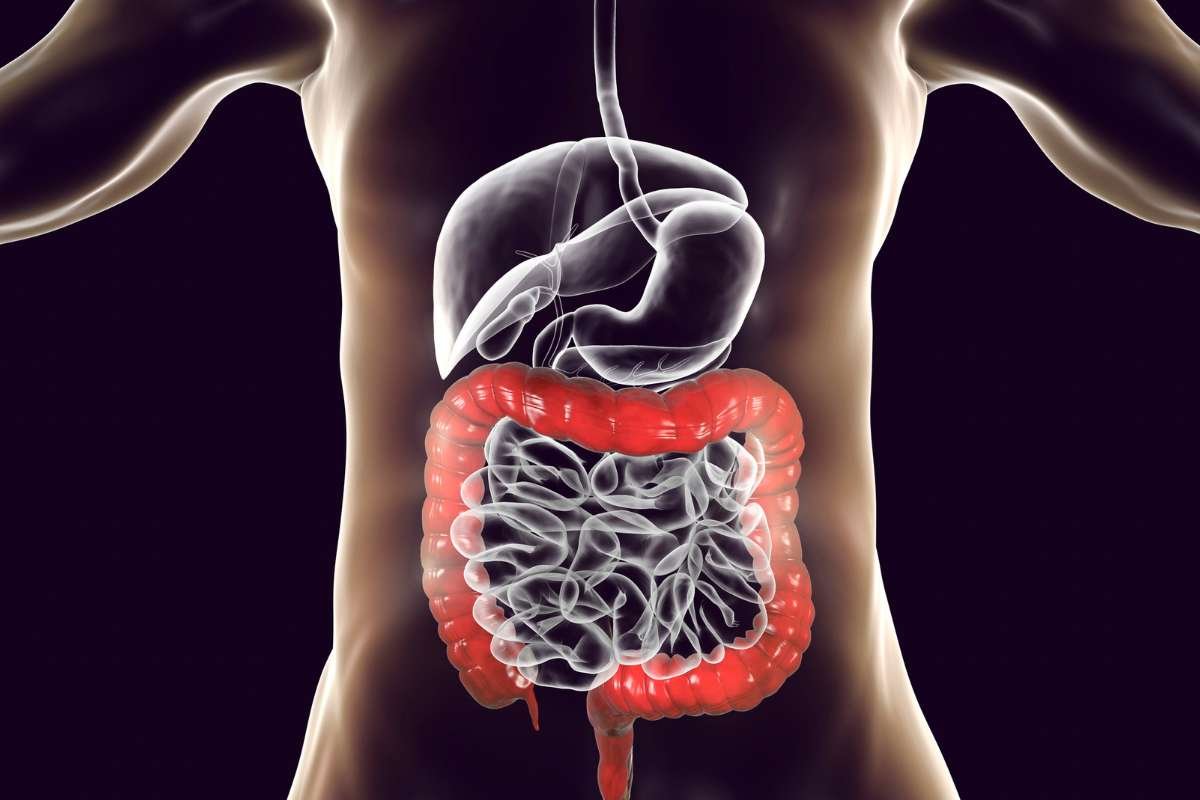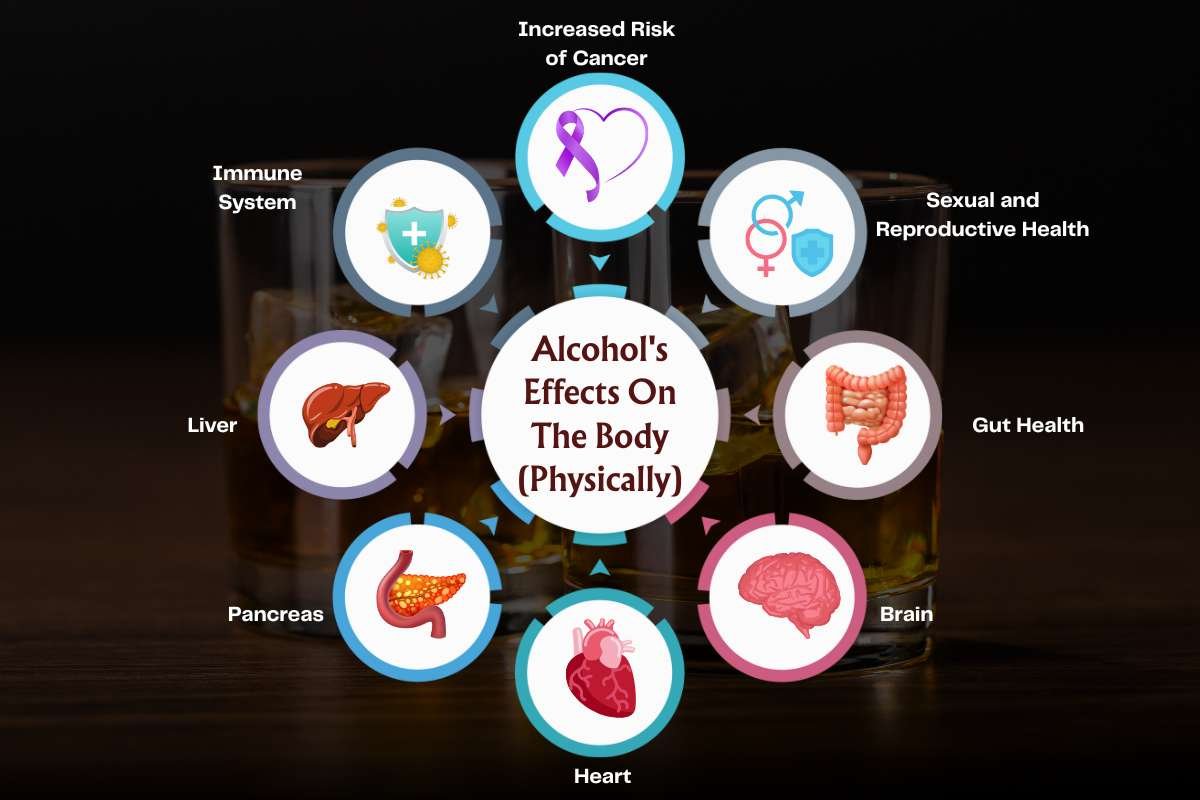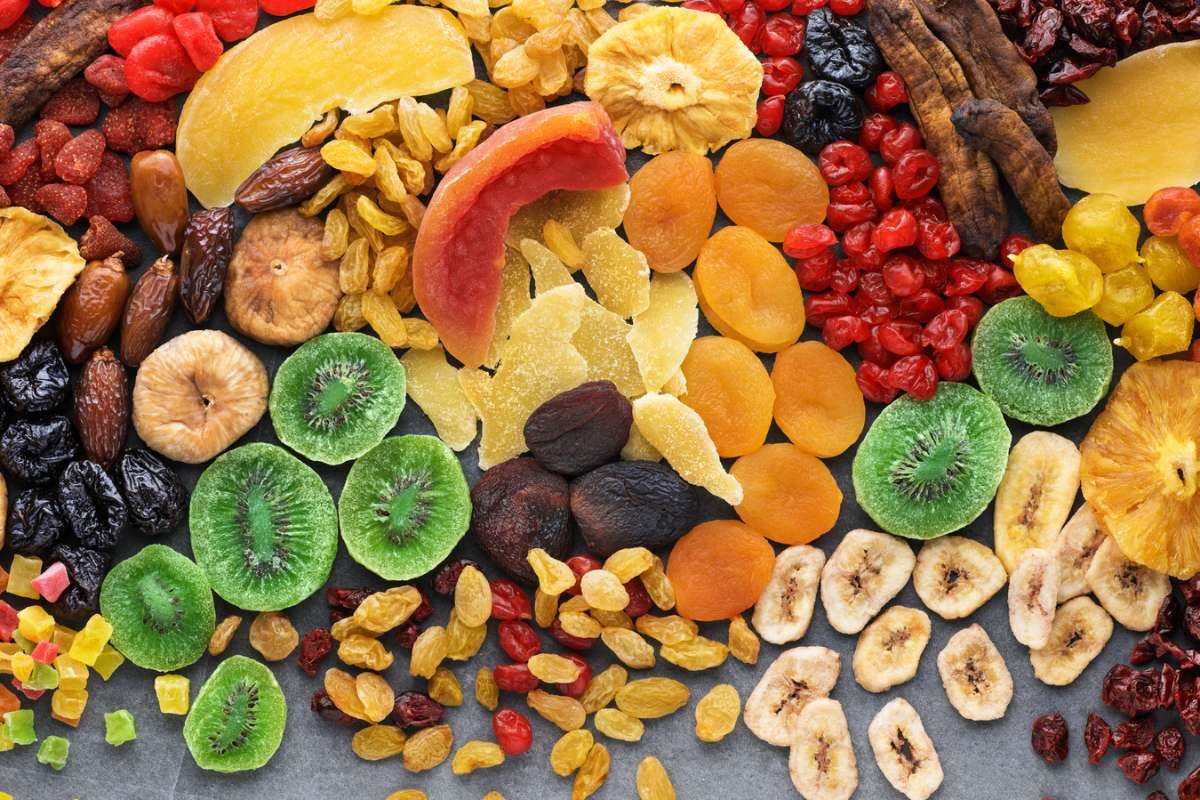It feels good, doesn’t it? To experience a numb state. A feeling of falling, or maybe a roller coaster ride, when you sleep after drinking a noticeable amount of an intoxicating substance. Alcohol is a spiral, often starting with a sip, then occasional, and finally becoming a daily habit, which becomes difficult to refrain from. Okay, becoming a daily habit is subjective, but it doesn’t mean your body is unaffected. Alcohol’s effects on the body are like a slow-burning fire, gradually causing damage over time.
If you drink, you must have experienced the feeling of a pleasant buzz that hits you after three drinks (if you’re not an occasional drinker). That sweet buzz quickly turns into a less-than-pleasant headache or a hangover that appears the next morning. Since those effects are not long-lasting, there’s nothing much to worry about, especially if you don’t drink often. Consuming an occasional pint of beer or a glass of wine during mealtimes is excusable due to their nature to work as appetizers. However, consumption of any amount of alcohol can potentially lead to a serious aftermath.
Every person has a backstory that helps validate their reason for doing so. Some are only occasional drinkers who want to fit in or be in a lively moment, while some have serious dependencies, being subjugated by the intoxicating substance. Over time, it significantly affects the body internally and externally. To avoid such consequences, it is essential to have a clear understanding of alcohol’s effects on the body.
Understanding Alcohol Use
1. → Excessive Consumption
Consuming alcohol excessively refers to four specific ways people drink that can seriously harm their health. It’s important to know that this kind of drinking can even be deadly.
| Drinking Type | Women | Men |
| Binge Drinking | 4 or more drinks | 5 or more drinks |
| Heavy Drinking | 8 or more drinks | 15 or more drinks |
| Underage Drinking | Alcohol Consumption by people under the age of 21 | |
| Alcohol and Pregnancy | Consumption of alcohol during pregnancy | |
2. → Moderate Consumption
- For men, having no more than two drinks in a single day is recommended.
- For women, the recommendation is to limit alcohol consumption to one drink or less per day.
Short-term Alcohol’s Effects on the Body
- Loss of coordination
- Nausea and vomiting
- Lapses in memory
- Impulsive Behavior
- Loss of consciousness or lapses in memory (also known as a blackout)
- Slurred Speech
Alcohol’s Effects On The Body( Physically)
1. Pancreas
As part of the digestive process, the pancreas helps regulate your body’s blood sugar levels. Alcohol can trigger the organ to produce toxic substances, leading to inflammation, a painful condition called pancreatitis. This can happen suddenly (acute pancreatitis) or build over time (chronic pancreatitis). As damage progresses, the pancreas loses its ability to help digest food and manage blood sugar levels. This can lead to malnutrition, weight loss, and even diabetes. Unlike hangover symptoms, pancreatic damage can leave a lasting impact if alcohol use isn’t brought under control early enough.
2. Liver

The primary function of the liver is to detoxify the body by removing alcohol from the bloodstream through a process called oxidation. With every drink, your liver has to break down ethanol, a toxic substance. When drinking becomes regular or excessive, fat builds up, leading to fatty liver. Over time, inflammation can occur, known as alcoholic hepatitis, which may turn into permanent scarring or cirrhosis. The liver can regenerate, but only up to a point. If damage goes unchecked, it can lead to liver failure. Symptoms like jaundice, fatigue, and swelling in the abdomen often show up only after significant damage is done.
3. Heart
While you may have heard that a glass of wine is “good for your heart,” that phrase is somewhat subjective. Excess alcohol can raise blood pressure, strain the heart muscle, and increase the risk of stroke or heart failure. It can also cause irregular heartbeats, even after just one night of heavy drinking, often referred to as “holiday heart syndrome.” Over time, alcohol weakens the heart’s ability to pump blood effectively, leading to shortness of breath or fatigue.
4. Brain
Among alcohol’s effects on the body, one of the major ones is how it alters brain function. From your very first drink, alcohol begins changing how your brain functions. It slows down communication between brain cells so that you might feel relaxed, uncoordinated, or less inhibited. Long-term drinking affects memory, focus, and decision-making and can even shrink brain tissue. Some people may also develop mood swings, depression, or anxiety. Chronic alcohol use may lead to conditions like Wernicke-Korsakoff syndrome, a type of brain damage linked to vitamin B1 deficiency. These changes don’t happen overnight, but they become more likely if you consume alcohol regularly.
5. Gut Health

Alcohol messes with your gut health. You know that unsettling feeling in your stomach the morning after a night of drinking, right? Alcohol irritates the stomach lining, often leading to bloating, nausea, or acid reflux. Over time, this irritation may develop into gastritis or even ulcers. Alcohol also disrupts the balance of healthy gut bacteria, known as the microbiome, which can affect everything from digestion to immunity and mood. Nutrient absorption drops, leading to fatigue, poor skin health, and low energy.
Also Read :- How to Stop Loose Motions Instantly Using Natural Solutions ?
6. Sexual and Reproductive Health
In terms of alcohol’s effects on the body, reproductive health takes a significant toll. Alcohol lowers inhibitions, but it also reduces sexual function. In men, it can interfere with testosterone production, leading to lower libido, erectile dysfunction, and decreased sperm count. Women may experience irregular periods, fertility issues, or early menopause with prolonged heavy drinking. Alcohol during pregnancy is hazardous as it increases the risk of miscarriage and fetal alcohol spectrum disorders (FASDs), which affect a child’s development for life. While a drink or two may seem harmless, regular alcohol use can significantly affect sexual health and fertility in both men and women.
7. Increased Risk of Cancer
Alcohol is officially classified as a Group 1 carcinogen, meaning it’s directly linked to several types of cancer. These include cancers of the mouth, throat, esophagus, liver, breast, and colon. The risk grows the more you drink; it doesn’t matter if it’s beer, wine, or liquor. When alcohol breaks down in the body, it forms acetaldehyde, a chemical that can damage DNA and interfere with the repair of cells. Even light to moderate drinking raises cancer risk.
Also Read : Surge in Rare Appendix Cancer Alarms Experts as Millennials and Gen X Face Rising Risk
8. Immune System
A weaker immune system is another example of alcohol’s effects on the body that people aren’t aware of. Alcohol weakens your immune system, even after a single night of heavy drinking. It lowers the number of white blood cells essential for the body to fight off infections like colds, pneumonia, or even COVID-19. Chronic drinking can keep your immune system suppressed over time, leaving you more vulnerable to illness and slower to heal from wounds or sickness. Alcohol also affects your sleep, which plays a significant role in maintaining immune health.
Also Read :- Eat Your Way to Wellness: 12 Everyday Foods Rich in Vitamins
Long-term Alcohol’s Effects on the Body
- Changes in appetite and weight
- Changes in mood, causing anxiety and irritability
- Insomnia
- Reduction of calcium levels, leading to thin bones and less muscle mass
- More stress and arguments in relationships with partners and family.
- Difficulty focusing on tasks
Why Are People Addicted to Alcohol?
Addiction stems from a mix of brain chemistry, environment, and emotion. Alcohol teaches your brain to chase dopamine, but that reward stream eventually dulls. Stress, trauma, anxiety, and family history heighten risk; about 50% of AUD(Alcohol Use Disorder) risk is rooted in genetics. Social pressure and easy access only deepen the habit. With repeated drinking, quitting brings withdrawal symptoms like tremors, anxiety, and even seizures.
Tips for Alcohol Reduction
1. Know Your Triggers
Track when you drink. Is it boredom? Stress? Company? Spot patterns and replace drinking with healthier habits like walking, hydrating, and chatting.
2. Set a Limit
CDC defines moderate drinking as up to two drinks a day for men and one for women. cdc.gov. Aim lower when possible.
3. Pace Yourself
Sip water between drinks, and alternate alcoholic and non-alcoholic beverages. The liver sticks to processing roughly one drink an hour.
4. Create Alcohol-Free Days

Add four or more sober days weekly. This helps reset habits and supports liver health, thesun.co.uk.
5. Build Support
Talk openly with friends or family. Join support groups or use counseling. For heavy use, medical detox may be safest, healthline.com.
Conclusion
Alcohol might feel like a quick escape or a brief pause from reality. Whether you drink occasionally or often, ask yourself why you’re doing it in the first place. Understanding alcohol’s effects on the body gives you more clarity. You deserve to feel good in your body without needing something that slowly pulls you apart. Small changes, less drinking, more Support, and better choices can bring a positive outcome.
FAQs
Q1. What counts as a “standard drink”?
A. In the U.S., one drink includes 14 g of pure alcohol: roughly 12 oz of beer, 5 oz of wine, or 1.5 oz of hard liquor.
Q2. Can light drinking be safe?
A. No amount is entirely safe; light drinking still raises cancer risk, though less than heavy use. Quitting is best for health.
Q3. How soon does the liver recover?
A. Within weeks of stopping, fatty deposits are reduced, and inflammation calms. More serious damage may take months to heal.
Q4. How do I know if I need help?
A. Signs include drinking to “forget,” having blackouts, needing more to feel good, or feeling anxious when not drinking. Withdrawal signs mean medical advice is wise.
Q5. Does wine protect the heart?
A. Early research suggested slight benefits, but recent guidelines show no level of alcohol is safe for the heart. It is better to lean on diet and exercise.









